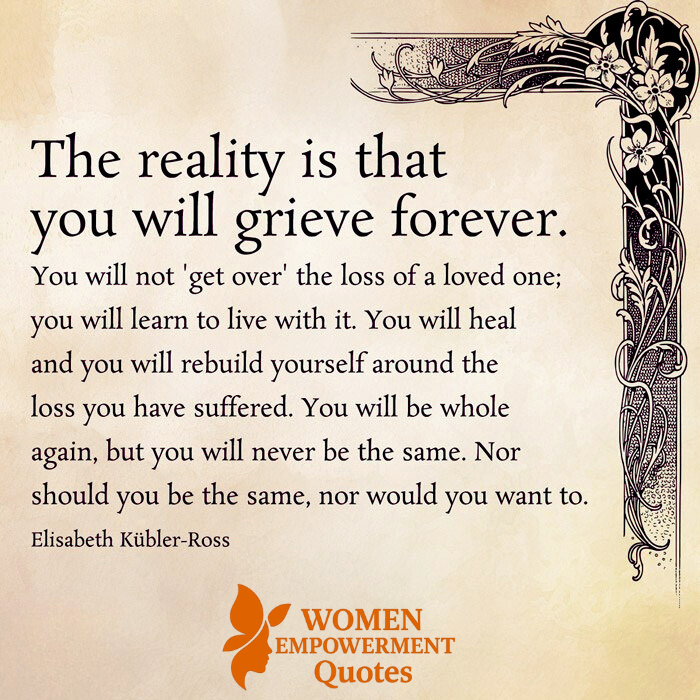
The Unfolding Journey of Grief
Grief is not something you get over. It’s something you learn to live with—an invisible companion that walks beside you for the rest of your life. The loss of someone you love doesn’t leave you as you were. It reshapes you, rebuilding your soul around a silent ache.
Elisabeth Kübler-Ross, a pioneer in understanding death and dying, taught us that grief is not a problem to be solved but a journey to be lived. She reminded us that healing doesn’t mean forgetting. It means learning to carry the love forward, even when the person is no longer physically present.
Grief, in its rawest form, changes us. It doesn’t simply end when the tears stop or when others expect us to “move on.” Instead, it etches itself into who we are. The shock, the pain, the emptiness—they become part of our story. Over time, those sharp edges soften. The sorrow finds a quieter place in the heart. But it never truly disappears.
This transformation is not a weakness; it’s evidence of love. Remaining unchanged would deny the depth of the bond we once held. Every scar is a reflection of a deep connection that mattered. And in that way, grief becomes a form of honor—proof that what we lost had profound meaning.
Elisabeth Kübler-Ross’s legacy continues to shape how we see mourning—not as a sign of weakness, but as a necessary path toward deeper empathy, resilience, and compassion. Her work reminds us to create space for sorrow, to honor it, and to allow it to teach us.
Grieving, then, is an act of love. And through it, we don’t go back to who we were—we become someone new. Someone shaped by love, loss, and the quiet strength that comes from facing what we feared we could not endure.
About Elisabeth Kübler-Ross: A Voice for the Dying
Born in Switzerland in 1926, Elisabeth Kübler-Ross was driven by a fierce compassion for the dying and those left behind. Her groundbreaking book On Death and Dying introduced the five stages of grief—denial, anger, bargaining, depression, and acceptance—offering language and structure to what had long been suffered in silence.
But her contributions went beyond theory. She humanized the dying process, demanding that those near death be treated not as cases, but as people—deserving dignity, love, and understanding. Her life’s work wasn’t just about death—it was about how we live in the face of it, how we love, and how we remember.
Reflections on Grief: Quotes That Speak to the Soul
“Grief is not a disorder, a disease or a sign of weakness. It is an emotional, physical and spiritual necessity, the price you pay for love.” – Earl Grollman
“What we have once enjoyed we can never lose; all that we lovingly forfeited remains to us forever.” – James Oppenheim
“Grief is the last act of love we have to give to those we loved. Where there is deep grief, there was great love.” – Anonymous
“The friend who can be silent with us in a moment of despair… that is a friend who cares.” – Henri Nouwen
In grief, we find not just pain—but also the enduring echo of love. And in allowing that love to reshape us, we discover strength, compassion, and the quiet courage to go on.